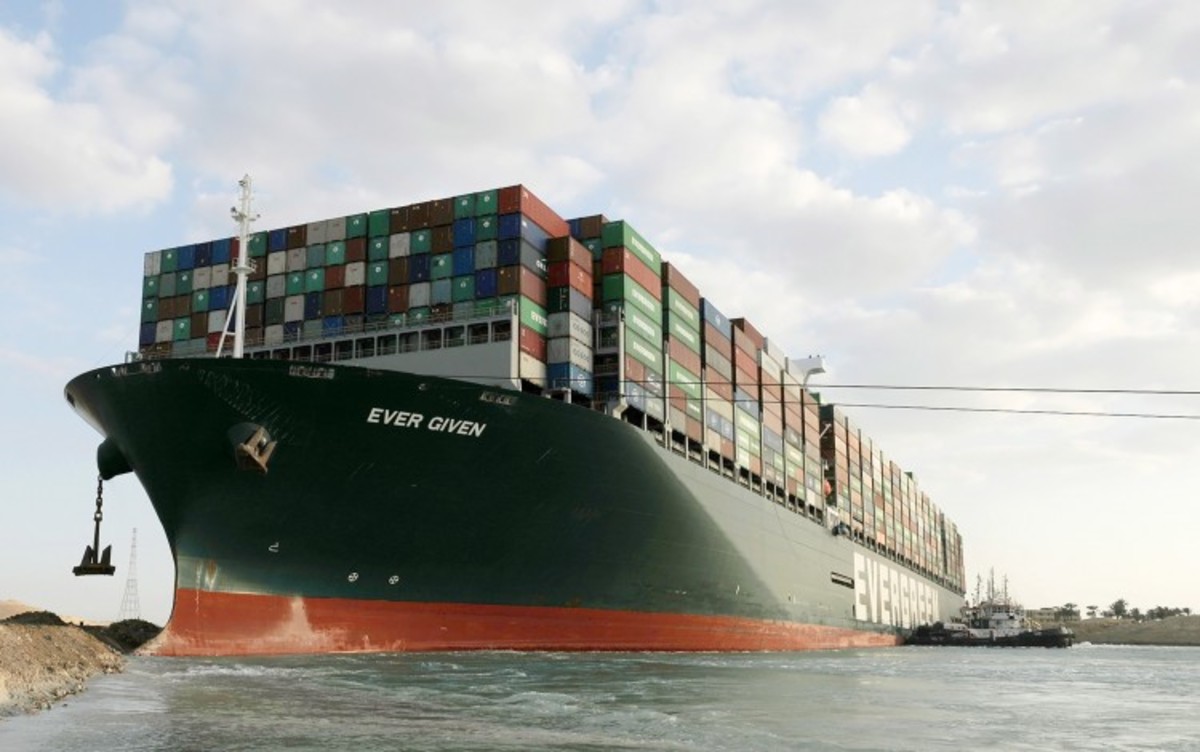
Shares of Danish shipping giant Maersk (AMKBY) -) took a hit Thursday following a report that the company would roll the dice and sail the majority of its vessels through the Suez Canal via the Red Sea despite ships of its own being targeted in the region.
The company had been redirecting its ships around the Cape of Good Hope in South Africa, at higher fuel costs, but now it will go back to business as usual, using the Middle East shipping route that it normally does.
Related: Oil surges as BP halts Suez traffic amid attacks by Iran-backed rebels
The company is scheduling several dozen vessels to travel through the Red Sea in the coming weeks after diverting 26 of its own ships in the last 10 days.
About a third of global cargo shipments come through the Suez Canal annually. The cost of re-routing ships around Africa is expected to cost up to $1 million extra per round trip between Asia and Northern Europe, Reuters reported.
Last week, the U.S. announced Operation Prosperity Guardian, a coalition featuring the UK, France, Italy, Netherlands, Norway, Bahrain, Canada and Seychelles "with the goal of ensuring freedom of navigation for all countries" passing through the southern Red Sea and the Gulf of Aden.
But despite the presence of the U.S. Navy, the Bab-el-Mandeb strait that separates the Red Sea from the Gulf of Aden is still dangerous thanks to the civil war in Yemen that has been ongoing since 2014 when rebels, supported by Iran, began an insurgency against the Yemen government.
A humanitarian crisis has ensued in the country since the war started, leading to the displacement of more than 4.5 million people with more than 21 million in need of aid, according to the Council on Foreign Relations.

The Houthi rebels have been more active in the Red Sea since the Oct. 7 Hamas attack against Israel, and Israel's subsequent air and ground assault of Gaza.
The rebels, who have repeatedly launched missile and drone attacks against ships in the region, have said that they are targeting only ships that are sailing to or from Israel, but they have also attacked ships like Maersk Gibraltar that was neither Israel-owned or traveling to or from the country.
Meanwhile, rival Mediterranean Shipping Company confirmed earlier this week that its container ship MSC United VIII was attacked on Dec. 26 while the vessel sailed from King Abdulla Port, Saudi Arabia to Karachi, Pakistan.
No crew members were injured and the vessel informed a nearby coalition warship of the attack and "as instructed engaged in evasive maneuvers," to escape the danger.
But as a result, the company says that it will "continue to reroute vessels booked for Suez transit via the Cape of Good Hope."
German shipping giant Hapag Lloyd has said that the situation is still too dangerous, with a spokesperson telling Reuters this week that it will continue rerouting its vessels around Africa, but will "plan a next review on Friday."
Most shipping carriers are expected to avoid the Red Sea, the Washington Post reported, due to the increased using of one-way attack drones and missiles by Houthis to disrupt shipping in the channel.
Maersk shares were down nearly 2% at last check Thursday afternoon.
Get exclusive access to portfolio managers’ stock picks and proven investing strategies with Real Money Pro. Get started now.







